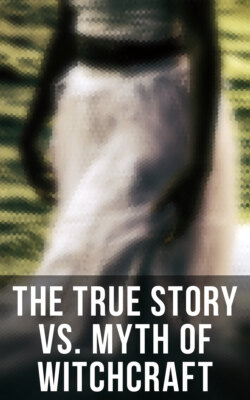Читать книгу The True Story vs. Myth of Witchcraft - William Godwin - Страница 150
На сайте Литреса книга снята с продажи.
Duff, King of Scotland.
ОглавлениеIt is not to be wondered at, when such things occurred in Italy, the principal seat of all the learning and refinement then existing in Europe, that the extreme northerly and western districts should have been given up to the blindest superstition. Among other instances we have the following account in relation to Duff, king of Scotland, who came to the crown about the year 968. He found his kingdom in the greatest disorder from numerous bands of robbers, many of whom were persons of high descent, but of no competent means of subsistence. Duff resolved to put an end to their depredations, and to secure those who sought a quiet support from cultivating the fruits of the earth from forcible invasion. He executed the law against these disturbers without respect of persons, and hence made himself many and powerful enemies. In the midst of his activity however he suddenly fell sick, and became confined to his bed. His physicians could no way account for his distemper. They found no excess of any humour in his body to which they could attribute his illness; his colour was fresh, and his eyes lively; and he had a moderate and healthful appetite. But with all this he was a total stranger to sleep; he burst out into immoderate perspirations; and there was scarcely any thing that remained of him, but skin and bone. In the meantime secret information was brought that all this evil was the result of witchcraft. And, the house being pointed out in which the sorcerers held their sabbath, a band of soldiers was sent to surprise them. The doors being burst open, they found one woman roasting upon a spit by the fire a waxen image of the king, so like in every feature, that no doubt was entertained that it was modelled by the art of the devil, while another sat by, busily engaged in reciting certain verses of enchantment, by which means, as the wax melted, the king was consumed with perspiration, and, as soon as it was utterly dissolved, his death should immediately follow. The witches were seized, and from their own confession burned alive. The image was broken to pieces, and every fragment of it destroyed. And no sooner was this effected, than Duff had all that night the most refreshing and healthful sleep, and the next day rose without any remains of his infirmity. 157
This reprieve however availed him but for a short time. He was no sooner recovered, than he occupied himself as before with pursuing the outlaws, whom he brought indiscriminately to condign punishment. Among these there chanced to be two young men, near relations of the governor of the castle of Fores, who had hitherto been the king’s most faithful adherents. These young men had been deluded by ill company: and the governor most earnestly sued to Duff for their pardon. But the king was inexorable. Meanwhile, as he had always placed the most entire trust in their father, he continued to do so without the smallest suspicion. The night after the execution, the king slept in the castle of Fores, as he had often done before; but the governor, conceiving the utmost rancour at the repulse he had sustained, and moreover instigated by his wife, in the middle of the night murdered Duff in his bed, as he slept. His reign lasted only four years. 158
